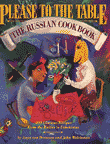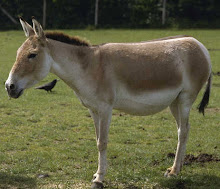Aigul Buyuk Kiereli Ipakchi immigrated to the United States after WWI as a refugee from Russian/Soviet Kazakhstan. She forged a successful life for herself as a professional nurse and found a true life partnership with a fellow refugee (from Azerbaijan). Her granddaughter Minna contributed this story about the exemplary woman Aigul continued to be, in the foreign and new land of America.
===================
It was 1958, a typical small-town American 4th of July parade. The high school marching band was there, the local fire brigade, some old men from some fraternal organization or another, etc., etc., all marching down Main Street in the heat, nothing unusual. But what no one knew was that some local boys had gotten into the fireworks meant for later that night and they were trying to light them in a field beside the parade route. They went unnoticed, until suddenly there was a flash of light and a loud BOOM!
Everyone watching the parade turned to look, the passing band stopped playing... and we saw a patch of grass was burning and two of the little boys were on fire, shrieking in terror and running in circles. People in the crowd started screaming and some began running toward the field, young men from the local fire company in the lead, but it was far off and the little boys were panicking and thrashing around, only making their clothes and hair burn faster. My sisters and I just stood there stunned, eyes wide and mouths literally hanging open, when in the next second Apa-- about 60 years old at the time -- raced past us on one of the police horses that had been pulling a small float in the parade. A woman standing in front of us literally fainted at the sight of her charging past on the horse. Everyone was screaming and pushing so we climbed on top of a car to look for Apa, to make sure we didn't just imagine it was her. And yes, it was her. People were diving out of the path of the horse as she galloped toward the field at a truly amazing speed, a blur of brown horse and green and pink flowered dress, leaping over all obstacles including, last, a tall metal fence! In the next second she had reached the boys, thrown them both to the ground, and she was beating the flames out with her bare hands!
It happened so fast, none of the men running toward the field had even made it to the metal fence by the time it was all over, the flames were out and she was running, carrying the smallest boy, screaming for the guys at the fence to stop gawking and go get an ambulance. Obviously no one had ever seen anything like that before, and certainly not in a tiny town on the Atlantic seaboard. The little boys had been badly burned and she was burned too (she had scars on the palms of her hands for life) but both boys survived, thanks only to her courage and quick thinking. (The younger boy, who had been the most seriously injured, actually visited her for years afterward, even as an adult. We got to know him pretty well...he always called her "my guardian angel.") Once the initial shock wore off, and we knew she was ok, my sisters and I were just bursting with pride over this rescue. Our grandmother was like a superhero right out of the movies and we figured, well, this is what it must mean to be Kazakh!
The following day the incident appeared in the local newspaper, a front-page story: "Mongol Horsewoman Saves Boys Aged 6 and 9." Back then (not unlike now, really), no American had ever heard of anyone (or anywhere) from Central Asia but Ghengis Khan! This was the '50s, you know -- American women weren't even supposed to work outside the home, so there was also no mention of the fact that our grandmother was a registered nurse -- a high level of education for a woman back then-- and that she had worked for 6 years in the burn unit. No wonder she understood it was only a matter seconds between life and death for those boys. We understood then how much our grandmother had accomplished, but also how much she had to overcome. Not only a non-traditional grandmother, but an Asian woman, from an unknown Soviet nation during the Cold War. She was an amazing woman, and if I am 1/100th the person she was, I'll be happy.
I'm sure we're missing many important events, too, because she really didn't talk about herself much, she was so humble, maybe too much so. You know, she never talked about the rescue at the parade, either -- she would have seen that as 'impolite' somehow or like boasting or something -- I think in part because those little boys had been so badly hurt, it wasn't a pleasant memory for her. She couldn't escape that story, though, because there were too many witnesses, myself included, so she humored us kids and let us tell the story to our friends. The only condition seemed to be that she had the last word about it, always adding at the end that it was "really an outstanding horse" and that she knew in an instant from his eyes that he was special, she and that horse were "in agreement" on what had to be done, and that's why they were successful. (I'm not kidding about this. She really felt the horse was heroic, not herself!)
When we were kids my sisters and I actually thought of our grandmother as almost super-human or something, too, especially after this one episode -- and I think that single incident really shaped what we kids thought it meant to be Kazakh.
Monday, May 22, 2006
Subscribe to:
Post Comments (Atom)


2 comments:
Great story. I love the blog, helps me gain a better understanding of Kazahkstan. Please keep it up.
what a fun story...maybe you should write a book about your grandma's life?
Post a Comment